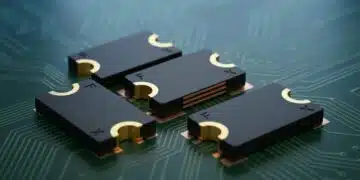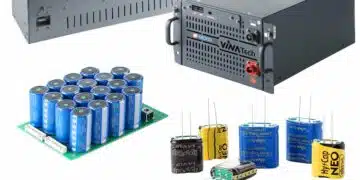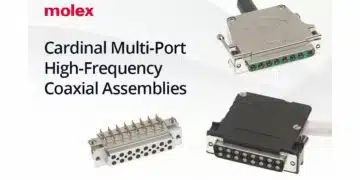source: Source Today news
The idea of legislation is to reduce cost of buying commodity products and reduce administrative overhead and paperwork.
James Carbone | Aug 25, 2017
More commercial off-the-shelf (COTS) electronics components such as commodity semiconductors, passives, and connectors could be purchased for Department of Defense (DoD) programs through online marketplaces if a bill that has been passed by the House of Representatives becomes law.
The legislation is part of the appropriations bill for the DoD, which is awaiting action in the Senate. Section 801 of the National Defense Authorization Act of 2018, H.R. 2811 requires the administrator of the General Services Administration (GSA) to establish a program to procure commercial products through online marketplaces. The idea of the bill is to make it easier and quicker to purchase commercial products, including electronic components for DOD programs.
If the bill becomes law, it means “all government procurement of commercial off-the-shelf items could be purchased through any online marketplace that meets the criteria set forth in the bill,” said Robin Gray, chief operating officer and general counsel for the Electronics Components Industry Association (ECIA).
Under the bill, the Defense Department would be required to use the marketplaces selected by GSA to purchase commercial products when appropriate. The GSA administrator would be required to contract with one or more commercial online markets for the purchase of COTS products, according to the House summary of the bill.
The bill defines an online marketplace provider as a “commercial, non-government entity providing an online portal for the purchase of commercial products aggregated, distributed, sold or manufactured by such entity,” the summary said. The GSA administrator would be required to choose marketplaces that are commonly used by businesses.
The proposed legislation stipulates that marketplaces must provide “the ability to search suppliers and products and identify such suppliers and products as authorized or not authorized.”
No Prioritizing Allowed
The marketplaces must list multiple suppliers for the same or similar products that can be filtered by price and delivery date. The legislation would also prohibit online marketplaces from prioritizing products and searches on the marketplace sites based on compensation paid to the marketplace by the seller.
The marketplaces selected must agree not to sell or make available to any third party any of the information regarding the DoD purchase.
The purpose of the bill is to reduce the cost of purchasing COTS parts as well as paperwork and administrative overhead costs. “The thinking is it would lower the cost of COTS items and give greater transparency because the pricing information will be available” to see, said Gray. He said many capacitors, resistors, and other passive components as well as commodity semiconductors including memory ICs could be purchased through the marketplaces by DoD.
While passage of the bill would be good news for online marketplaces, it would potentially be beneficial to electronics distributors assuming they “can meet the criteria currently in the bill which I feel that they could,” said Gray.
The POS Challenge
However, one possible challenge for distributors could be point-of-sale (POS) reporting by distributors. Component manufacturers often require POS information from authorized distributors selling their parts. Under the bill, a distributor cannot share such information with a third-party.
“The question is, will manufacturers be included in that definition of a third party,” said Gray. “The key to all this will be if the bill gets passed, is how the GSA will write the regulations in defining the terms.”
He added there is a possibility that the distributor can’t report POS sales to the government to the manufacturer. “Now, some distributors probably like that, but I’m not sure how the manufacturers would react,” said Gray.An issue for online marketplaces could be “delineating suppliers who are authorized and which ones that are not,” said Gray. Non-franchised distributors and brokers often sell parts through online marketplaces.
Another challenge for marketplaces is they cannot give search return positions based on advertising or other compensation, which is to key part of many marketplace business models, said Gray. Suppliers want to be at the top of a returns search.
“Distributors don’t do that so that is an advantage for them,” said Gray.
Gray said as the bill stands right now the ECIA would be in favor of it, “but the devil is in the details” of the regulations that will be formulated by the GSA administrator.
featured image source: AVX
































